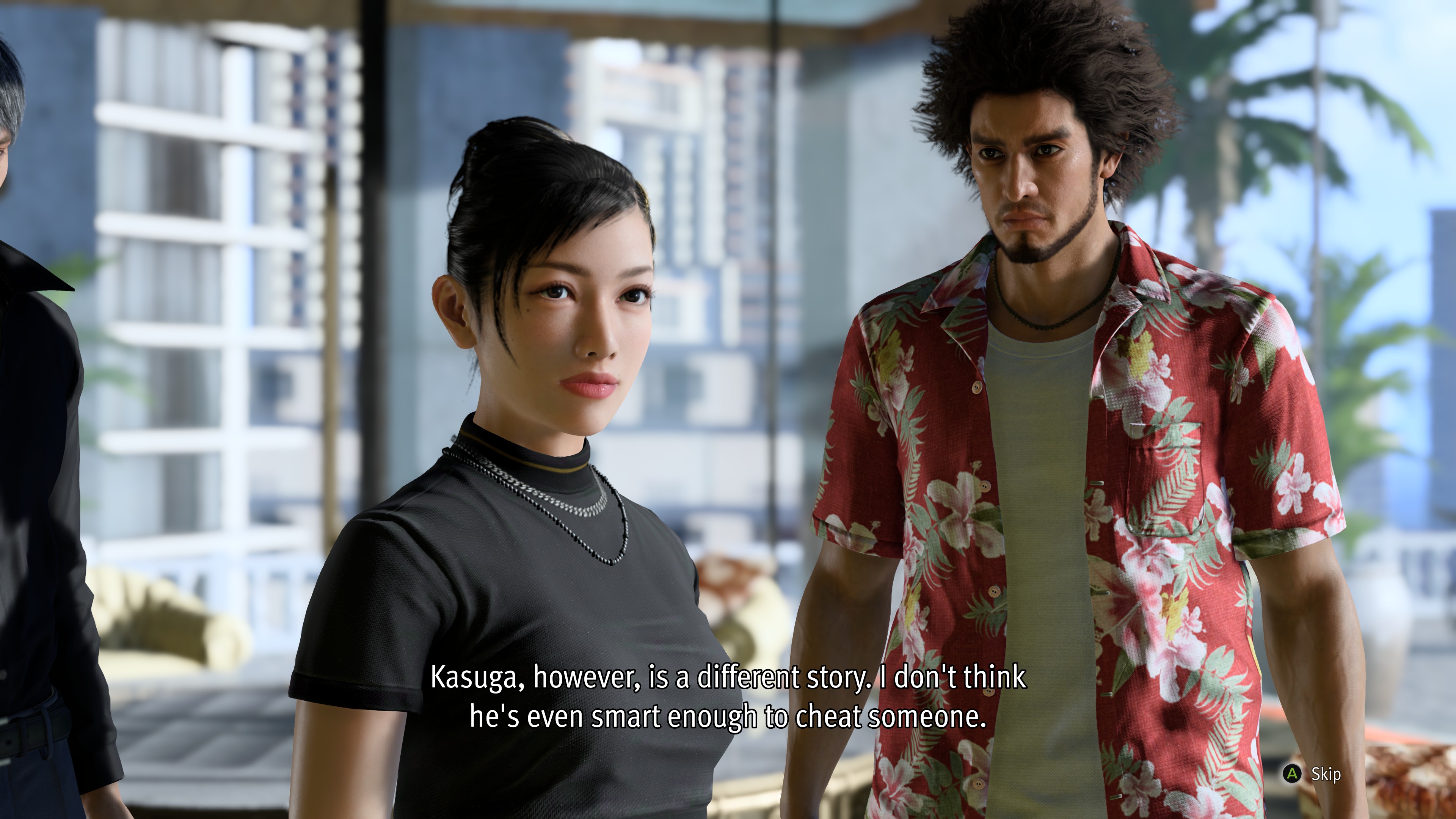Confession time: I had huge reservations ahead of Infinite Wealth's release. Not for the game itself--the Yakuza series is nothing if not dependable--but for one of my favourite things about the games once I'm free to start roaming their streets.
Every other Yakuza game released over the past two decades has been set in Japan. Mostly in the fictional Tokyo district of Kamurocho, but with stops in Osaka, Yokohama, Okinawa and Onomichi along the way. Whether it was a bustling metropolis or a quaint seaside village, every location had one constant: they were very Japanese.
That was a huge deal for me, for a few reasons. Firstly I just really admire the dedication to realism. The Yakuza series has never been interested in crafting caricatures of cities like Grand Theft Auto; instead it seeks to recreate them wholesale, from the types of bricks used to the stickers on restaurant doors. It gives the series a grounding in our own reality that few (if any!) other AAA series can match.
Secondly, it's great for people like me who like to indulge in a little virtual tourism from time to time. From convenience stores to bars, little parks to shrines, every time I play a Yakuza game I'm reminded of my own travels to Japan--somewhere I don't get to visit enough these days--and as I play I swear I can feel the humidity on my skin and that I'm able to smell everything from the weird refrigerant gases they seem to only use in Family Marts to the smell of grilled meat wafting over a restaurant district.
So when Infinite Wealth was first announced with a beachside cutscene, and we later found out that a huge portion of the game is set in Hawaii, I was worried! I've loved every previous Yakuza game, no exceptions, but being set in Japan was one of the few things constant throughout the series, and was something I really appreciated about them, so would Infinite Wealth be losing something in making the move overseas?
Please note I wasn't just finding things to worry about for the sake of it, I had precedence for my concern! When Sega--after years of pestering--finally localised one of the Yakuza series' samurai spin-offs recently, having long claimed Westerners wouldn't be into them, I rejoiced. Then, 10-15 hours into the game I felt like an asshole, because despite my very public protestations, it turned out Sega was right: something was off about the game. While it featured all the series' trademark characters, writing and action, moving Yakuza out of modern Japan and setting it centuries in the past sucked a lot of my joy for it straight out the window. Turns out I didn't just love Yakuza games because they were set in Japan; it had to be modern Japan for it to truly resonate.
Infinite Wealth starts off in Yokohama, so it eases you in on familiar ground, but once you hit Hawaii a few hours into the game it's a trip! As I've already talked about, the whole game world feels slightly askew. All the stores you've relied on in previous games, the locations and back alleys you've memorised, the stories that a slowly-changing environment has told over the years, it's all gone, and you find yourself--like Kasuga does in the story itself--stuck in this weird new place that kinda looks like a Yakuza game but also looks like one that's been run through an auto-translate program.
Which, on a much wider level, seems entirely the point. Infinite Wealth isn't just taking a trip to Hawaii for narrative purposes: I think it's also there to show that the series' new leadership is moving the games in a direction, and with a confidence, that simply wasn't there under the original regime.
Kamurocho and other iconic Yakuza locations have been heralded for their intimacy and detail, sure, but as game after game came out, and we got to know every square inch of their streets, they started to feel like something more than just backdrops. They started to become the stars of the show. You could slap any old gangster tale in there, put the player in control of a member of the Yakuza--could be Kiryu, could be someone else, didn't matter--and, so long as it involved endless runs over the bridges of Sotenbori, fans would relate to it and all would be well.

I've felt a shift in the games coinciding with the shift in studio leadership, though. 2020's Like A Dragon introduced a new main character seemingly at complete odds with Kazuma Kiryu; while still handy with his fists and with a heart of gold, Ichiban was also entirely fallible. While Kiryu was perfect, Kasuga was rash, gullible, naïve, childish, maybe even a little bit crazy. His new friends, from a grizzled old ex-cop to a disgraced former nurse, were equally flawed. Even the game's Korean and Chinese stars weren't (entirely) the racist pastiches Nagoshi-era Yakuza games would have painted them as, either.
That shift is clearly in full swing now, because despite all my fears over moving the series to Hawaii, Infinite Wealth fucking rules. I'm having more fun with it than any Yakuza game since maybe 0. Sure, Hawaii is new and weird and alien, but so is the game's cast. Like A Dragon and Infinite Wealth are centred around the adventures of an extremely lovable cast of misfits, and having them at the heart of the game, not some familiar city streets, has proven to be a masterstroke.
I'm not saying every Yakuza game from here on needs to be set somewhere international. It's a Japanese series starring Japanese characters, it will always call Kamurocho and Ijincho home, and we'll always love it for that. But if it ever does need to take another holiday, Infinite Wealth shows there's absolutely nothing to worry about; I'll follow these idiots anywhere.


